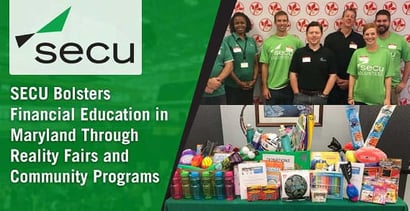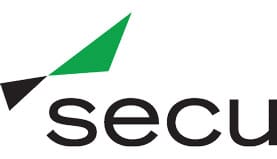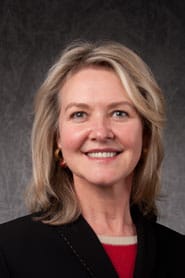

In a Nutshell: SECU, Maryland’s largest credit union, embodies the credit union difference by giving back to the communities they serve. It focuses on providing quality financial education through a combination of events, online tools, and educational resources. Its Reality Fair events take high school and college students through simulated monthly budgeting scenarios based on various salary levels. SECU also takes financial education directly to the workplace with its Bank at Work program. The credit union rounds out its robust community support efforts by donating food and school supplies, and by awarding scholarships.
When I landed my first part-time job as a high school junior, I thought I had it made. I had money to go out with friends, buy gifts for my girlfriend, and do my own holiday shopping. While it may be a good life experience to work a part-time job in high school, it didn’t provide much in the way of learning about finances.
Sure, my mom told me I should save some of my hard-earned dollars, but when you’re living at home with bills and major expenses covered by your family, it’s not easy to grasp the importance of that advice.
College was a different story. Once I was living on my own, going to school full-time, and working, it became apparent that stashing away a few dollars here and there over the previous couple of years would have come in pretty handy.
 This scenario is probably familiar to a lot of young people as they go off to school or get their first taste of supporting themselves. At the time, I wasn’t aware of any financial education opportunities available to me — and honestly, unless it was placed right in front of me, I might not have cared.
This scenario is probably familiar to a lot of young people as they go off to school or get their first taste of supporting themselves. At the time, I wasn’t aware of any financial education opportunities available to me — and honestly, unless it was placed right in front of me, I might not have cared.
But this is exactly what SECU is doing for high school and college students in Maryland through its Reality Fairs. The real-world budgeting event is just one piece of SECU’s multi-faceted approach to providing financial education to the communities it serves. It also delivers financial education opportunities to the workplace, awards scholarships, and gives back through food and school supply drives.
Founded in Baltimore with only a handful of volunteers as the State Employees Credit Union in 1951, SECU has come a long way. The credit union has seen steady growth over the years and now boasts more than 260,000 members, more than $3.6 billion in assets, and a presence throughout the state of Maryland.
Reality Fairs Bring Real-World Budgeting Lessons to High School and College Students
With SECU’s Reality Fairs, high school and college students are immersed in learning real-world budgeting to prepare them for life after graduation.
“Reality Fairs are highly interactive, experiential events. SECU goes into high schools and colleges and simulates a month in the life of a working adult,” said Joseli Wright, Senior Vice President for Retail Banking at SECU. “By doing it this way, these students experience something tangible that makes it a real meaningful experience for them and creates longer-term value.”
In a Reality Fair, students choose a career based on their personal interests, and volunteers from SECU provide them with a budget worksheet and predetermined salary based on their career choice. Just like the real world, the students then have to make some important decisions based on their salary.

Students choose careers, are assigned a salary, and then create a monthly budget to simulate real-world budgeting choices at SECU’s Reality Fairs.
Do they want to rent or own? Will they have a roommate? Will they own their own vehicle or take public transportation? What about food, clothing, and entertainment? Will they own a pet?
Students also spin the “Wheel of Life” which includes those unforeseen expenses that are inevitably thrown at everybody at some point or another, such as car repairs or speeding tickets.
“They go through all these different decisions, and in the end, they get to meet with a financial counselor to go over their budgets to make sure they were able to meet their expenses,” Wright said. “And the counselor is always going to ask — even if your budget matched up to a tee — ‘what about those rainy days? Are you setting some money aside for savings?’”
Wright said the Wheel of Life is extremely important in the budgeting process because it helps young people to start understanding the importance saving early in their financial journeys.
Wright has seen many students go into the program skeptical because it was required by a teacher or professor, but by the time they finish, they have a new perspective on the importance of budgeting — some have even said it was life-changing for them.
“The most important lesson the students can learn from this is that it doesn’t matter how much you make, it’s how much you can budget and save,” Wright said.
SECU is working to increase the number of Reality Fairs it offers each year. The program is completely free. The only thing the schools have to do is commit to a date and send as many students to attend as possible. SECU can do the program on-site, or it can bus the students to SECU Arena, a facility located on a local college campus, or another location if necessary.
In addition to Reality Fairs, the credit union also offers a Real Life, Real Talk program, in which a panel of financial experts visit a high school or college to field any questions on financial topics the students are interested in learning more about. She said the panels are typically an hour long and are in a question-and-answer format.
Helping Area Businesses Boost Employee Financial Education Through SECU’s Bank at Work Program
SECU also promotes educating working adults on financial issues. Through its Bank at Work program, SECU offers companies free financial education programs and tools for their employees.
According to SECU’s website, a majority of Americans say they are stressed about money, and employers say their “employees are less productive at work when they are worried about finances.”

Joseli Wright is the Senior Vice President for Retail Banking at SECU in Maryland.
Bank at Work can help alleviate these stressors by providing them with the skills, tools, and knowledge they need to manage their finances more efficiently, and in turn, reduce their stress over money issues, which could boost productivity.
SECU conducts face-to-face sessions or educational brown-bag lunches at its Bank at Work organizations, Wright said. The employees usually choose the topic, which could be anything from buying a first home to saving for retirement, or repairing credit.
“We know it’s important for us to be at the forefront, teaching financial education,” she said. “No one goes to school and learns this stuff. And really, sometimes people learn through the school of hard knocks.”
Employees of SECU’s Bank at Work partners are also eligible to become SECU members. As a credit union, SECU offers members the benefits of lower loan rates, higher deposit rates, and fewer and lower fees than traditional banks. The credit union also offers a suite of online learning modules to guide members through important financial education topics. Members can also be able to take advantage of financial counseling through SECU’s partnership with Greenpath Financial Wellness.
Bank at Work is also an opportunity for employers to show their employees that they are “invested in their financial well-being by providing credit union membership.”
Food Donations, School Supplies, and Scholarships Round Out SECU’s Holistic Approach
“We’ve really been trying to create a framework of giving back to the community,” Wright said.
This framework not only includes bringing financial education to communities with programs like the ones mentioned above, but it also means giving back, she said.
SECU employees collect and donate hundreds of pounds of canned food to a variety of local organizations, including the Maryland Food Bank, the Family Crisis Center, and the Joseph House Crisis Center each year. SECU and its members also donate more than 2,000 school supplies to students in need at the beginning of each school year.
“Being a part of a community means you have to help out when and where you can,” according to the SECU website. “SECU realizes that, although financial education is our primary community goal, various social causes need vital support. If we help people in these ways, we can improve Maryland communities as a whole.”
 SECU also sponsors three academic scholarships each year through its SECU MD Foundation. Over the years, more than $465,000 has been awarded to more than 180 recipients.
SECU also sponsors three academic scholarships each year through its SECU MD Foundation. Over the years, more than $465,000 has been awarded to more than 180 recipients.
The Donald Tynes Sr. Scholarship honors Tynes, a longtime SECU Board member, by offering five $2,000 scholarships to students enrolled in Morgan State University’s Graves School of Business. The University System of Maryland Scholarship awards between $2,000 and $5,000 to students accepted into a four-year college in the University System of Maryland. And the State Employee Scholarship also awards between $2,000 and $5,000, to current or retired Maryland state employees and their family members who attend a two-year college, four-year college, or trade school.
Thinking back to those relatively carefree high school years certainly brings back a bit of nostalgia for those nights out I had with friends. But as an adult with a mortgage, cell phone bill, and a plethora of other monthly expenses, having a leg up on budgeting and financial literacy when I first entered the workforce would have been more valuable.
Advertiser Disclosure
BadCredit.org is a free online resource that offers valuable content and comparison services to users. To keep this resource 100% free for users, we receive advertising compensation from the financial products listed on this page. Along with key review factors, this compensation may impact how and where products appear on the page (including, for example, the order in which they appear). BadCredit.org does not include listings for all financial products.
Our Editorial Review Policy
Our site is committed to publishing independent, accurate content guided by strict editorial guidelines. Before articles and reviews are published on our site, they undergo a thorough review process performed by a team of independent editors and subject-matter experts to ensure the content’s accuracy, timeliness, and impartiality. Our editorial team is separate and independent of our site’s advertisers, and the opinions they express on our site are their own. To read more about our team members and their editorial backgrounds, please visit our site’s About page.
